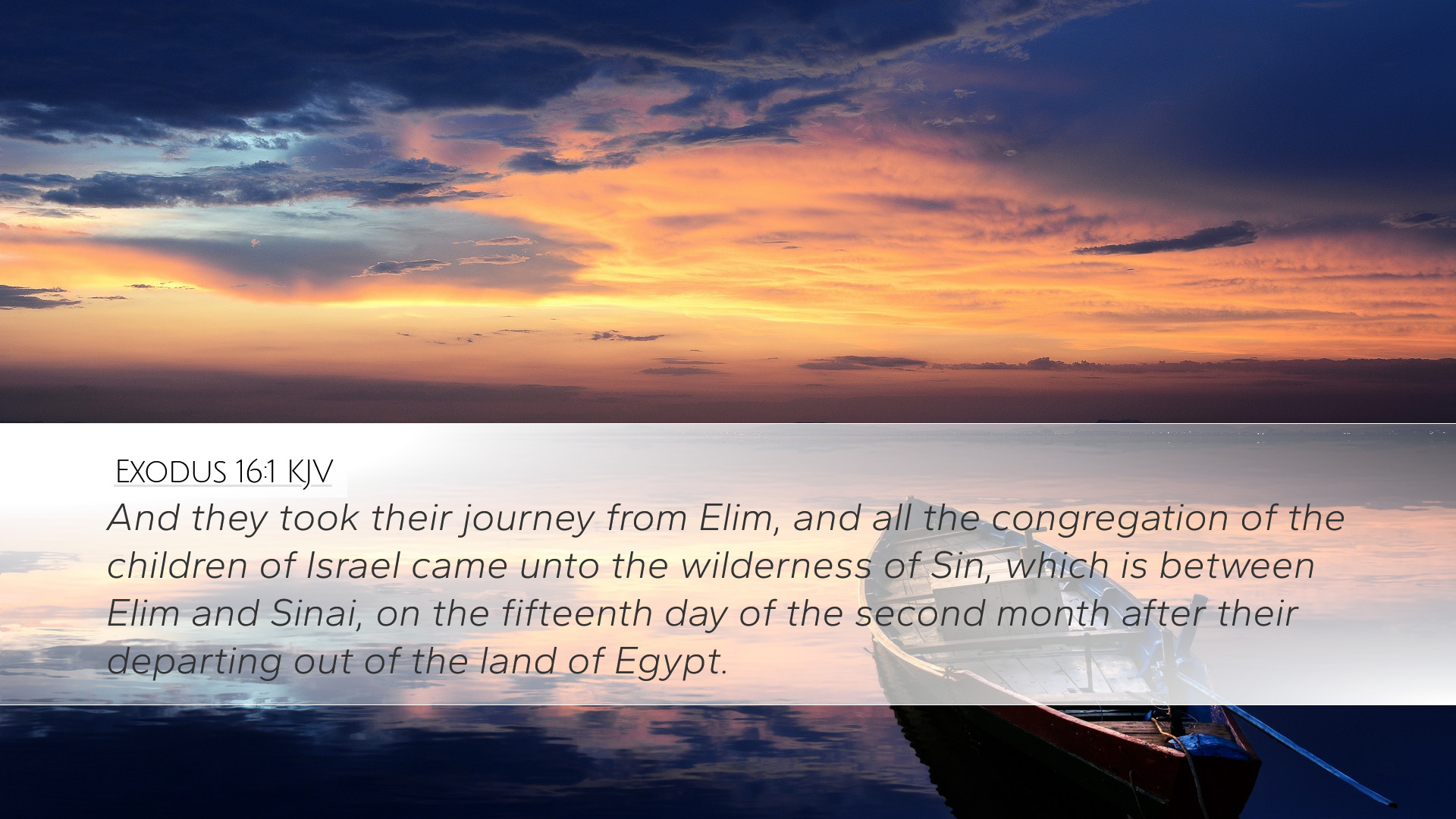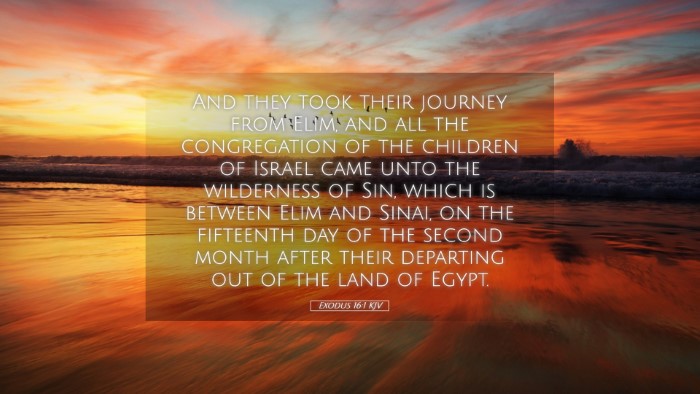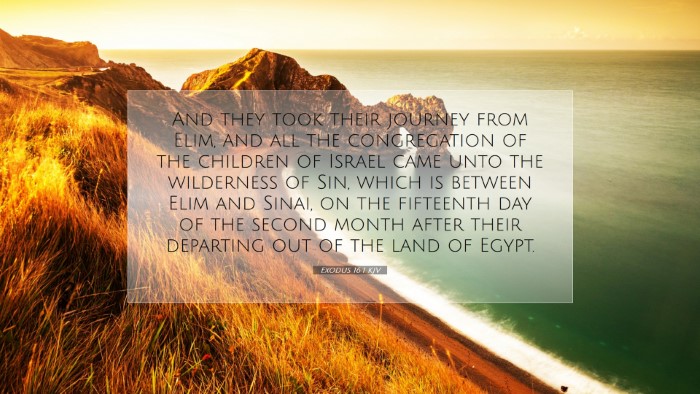Exodus 16:1 Commentary
Verse: "And they took their journey from Elim, and all the congregation of the children of Israel came unto the wilderness of Sin, which is between Elim and Sinai, on the fifteenth day of the second month after their departing out of the land of Egypt."
Overview
Exodus 16:1 marks a significant transition for the Israelites, as they journey further into the wilderness after their liberation from Egypt. This verse encapsulates both the physical journey of the congregation and the spiritual lessons that stem from this experience of dependence on God.
Contextual Analysis
In the preceding chapters, the Israelites have witnessed God's mighty hand in delivering them from slavery. They have already experienced the miraculous crossing of the Red Sea and the subsequent deliverance from the Egyptian army. The experience at Elim provided respite, with its twelve springs of water and seventy palm trees. However, as they move into the wilderness of Sin, they face imminent challenges that test their faith.
Historical and Geographical Significance
- Departure from Elim: Elim represents a place of comfort and abundance; leaving this place marks a transition from ease to hardship. The Israelites must now rely on God in a barren landscape.
- Location of Wilderness of Sin: This area is situated between Elim and Sinai and is significant in the narrative as it sets the stage for God’s provision through manna, establishing a pattern of reliance on divine sustenance.
Theological Themes
Dependence on God
The journey into the wilderness signifies a period where Israel must learn to trust God for their daily needs. They are transitioning from the prosperity experienced in Egypt to a state of reliance on divine providence. This exemplifies a key theological lesson—our human weakness is the canvas on which God's strength is displayed.
God's Provision
As the congregation finds themselves in the wilderness, God's providence becomes a central theme. They are about to witness how God sustains His people in times of need. This not only fosters their faith but also prepares them for the covenant relationship established at Sinai.
Testing and Transformation
In leaving the simplicity of Elim, the Israelites enter a phase of testing that serves to refine their character and faith. God desires to transform them from a nation of slaves into His chosen people, which necessitates trials that will develop their trust and obedience.
Commentary Insights
Matthew Henry's Perspective
Matthew Henry emphasizes the manifold blessings God has provided and the necessity of testing for spiritual growth. He notes, “When the people are brought low, they are in a better capacity to receive what God will give.” This assertion highlights that difficulty serves not merely as a challenge but as a precursor to divine providence. Henry elaborates on the idea that God saw the plight of His people and had already planned their sustenance, preparing them to know Him as their provider.
Albert Barnes' Commentary
Albert Barnes focuses on the timeline of the Israelites' journey, noting the significance of the "fifteenth day of the second month." His commentary describes this as a time marker that not only provides historical context but also emphasizes God's organized providence in the wilderness. Barnes asserts that this precise timing reflects God's perfect order and concern, suggesting that every aspect of the journey is under God’s sovereign direction.
Adam Clarke's Analysis
Adam Clarke delves into the cultural implications of the wilderness experience. He elucidates on how the wilderness serves as a necessary environment for spiritual formation. Clarke suggests that the hardships faced in such a desolate place reveal deeper truths about God's character and the nature of faithful living. He emphasizes, “Wilderness experiences are vital for developing reliance on God’s faithful provision.” Thus, Clarke points out that the move into the wilderness is not just a physical shift but a transformative spiritual journey.
Applications for Today
- Learning to Trust: Just as the Israelites had to trust God in the wilderness, contemporary believers are called to depend on God in times of uncertainty and lack.
- Recognizing God’s Provision: The narrative encourages individuals to recognize and anticipate God’s provision, reminding us that He is attentive to our needs.
- Valor in Trials: The experience of the Israelites serves as an encouragement to face trials with courage, as these moments are often where faith is forged and deepened.
Conclusion
Exodus 16:1 resonates deeply with believers as it encapsulates the journey toward understanding God’s provision, the necessity of trial, and the call to trust. By reflecting on the insights from the commentaries of Matthew Henry, Albert Barnes, and Adam Clarke, we are encouraged to see our own wilderness experiences as opportunities for growth, dependence, and transformation by God's grace.


